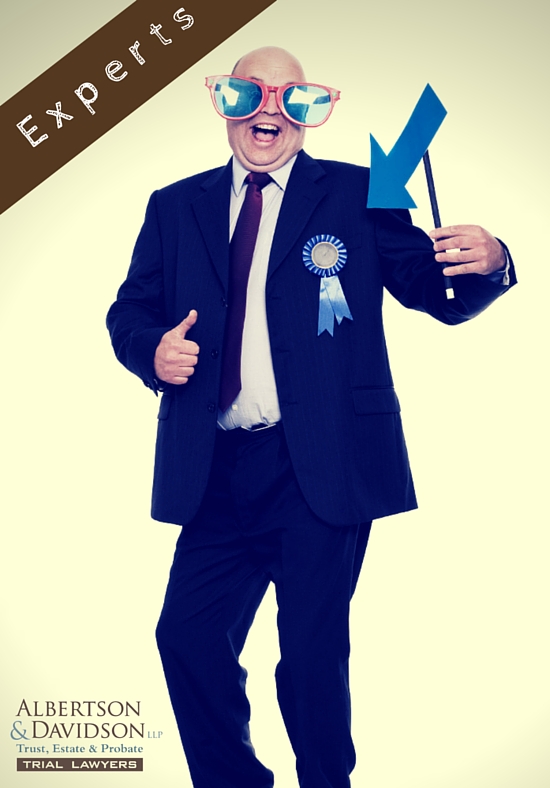
If you are suing to overturn a Trust or Will, or taking any other action for that matter, on the basis of capacity or undue influence, then you need an expert witness. In fact, in any case where there is information in medical records, you need an expert witness. Why? Because of a little thing called hearsay.
Everyone seems to have heard of the term hearsay, though few understand it. Hearsay is any out-of-court statement that is being used in court at time to trial to prove a fact. And just about everything we do in our lives everyday is hearsay because we don’t do anything in court. That means all of our documents are hearsay—banking records, notes, letters, birthday cards, medical records, emails, voicemails, Facebook posts, snapchats—all hearsay. And every one of our conversations with other people are all hearsay.
Hearsay evidence is not allowed come time of trial. If you think about that, it means that nearly everything you do, say, write, or communicate cannot come into trial UNLESS…it fits into one of the exceptions to the hearsay rule. Luckily there are something like a billion exceptions to the hearsay rule (okay only twenty-five, but it seems like a lot). Hearsay is essentially the Swiss cheese of legal rules because it’s filled with so many holes.
Let’s talk medical records because that’s where experts come into play. One of the most widely used exceptions to hearsay is the business records exception under Evidence Code section 1270 to 1272. This exception allows documents to come into evidence if the document is the type created in the ordinary scope of business and it records an act, condition, or event.
The best example are bank records. Money goes into a bank account, it is recorded. Money goes out of the bank account, it is recorded. The bank statements are created in the normal course of a bank’s buseinss As long as the bank can testify to the creation of the statements, it comes into evidence no problem.
But that does not work with medical records because the part of the medical records we most want to use as evidence in capacity and undue influence cases is the diagnosis. Did the treating physician think that the patient was suffering from dementia or Alzheimer’s? How did the patient do on a mental evaluation test? What are the physicians thoughts and impressions?
All of this goes far beyond the mere recordation of an act, condition, or event because it requires a thoughtful analysis by the doctor. That means it does not qualify for the business records exception. So how do you get this crucial evidence before the court?
That’s where expert witnesses come into play. An expert can review all the medical records that would be hearsay at trial. And the expert can express his or her opinion at trial based on that hearsay information. In fact, any hearsay whatsoever can be reviewed and considered by the expert to the extent necessary to form a medical opinion. The expert can then testify in court that the decedent was suffering from dementia or Alzheimer’s.
If you have no expert, then you likely have no ability to discuss the best part of the medical records during trial.
